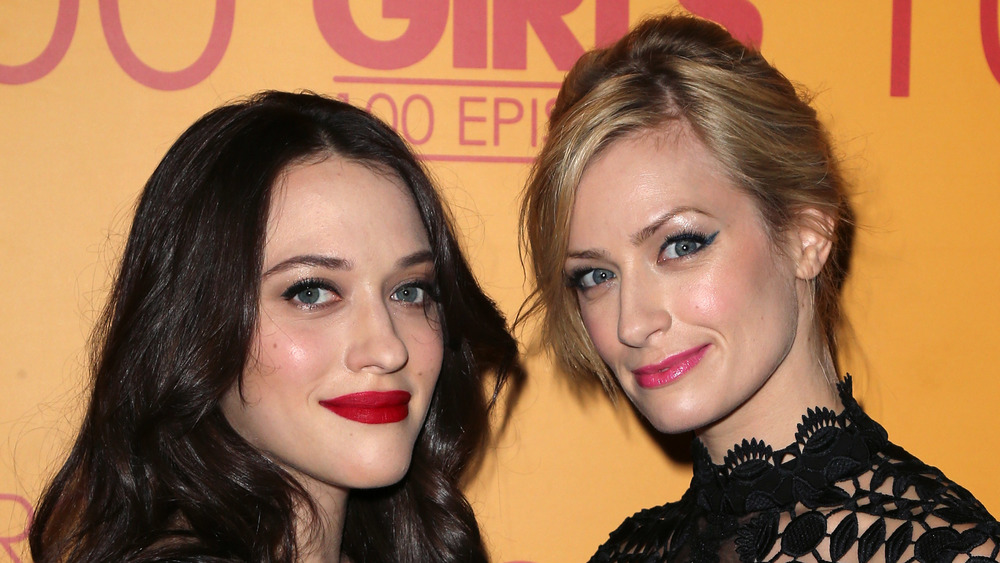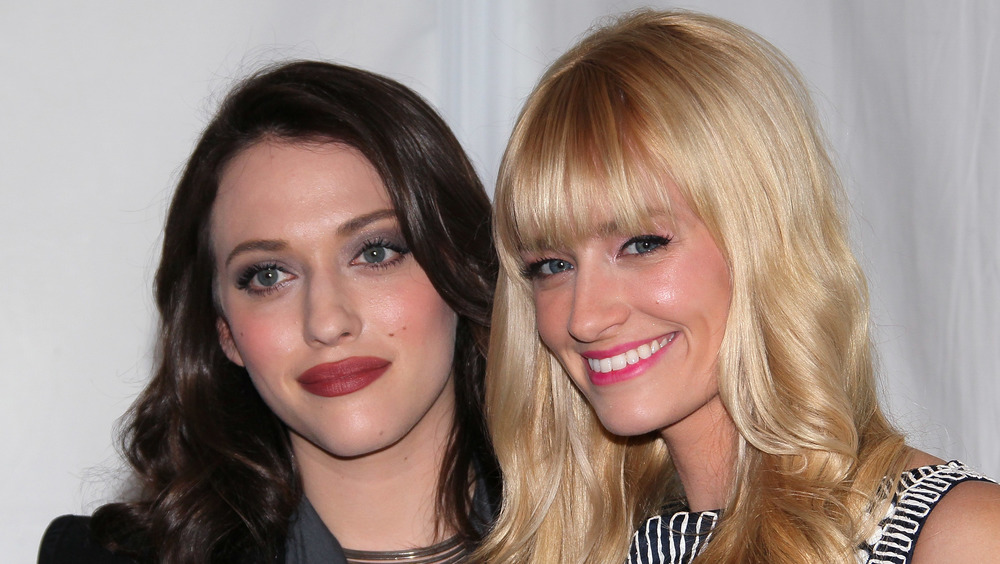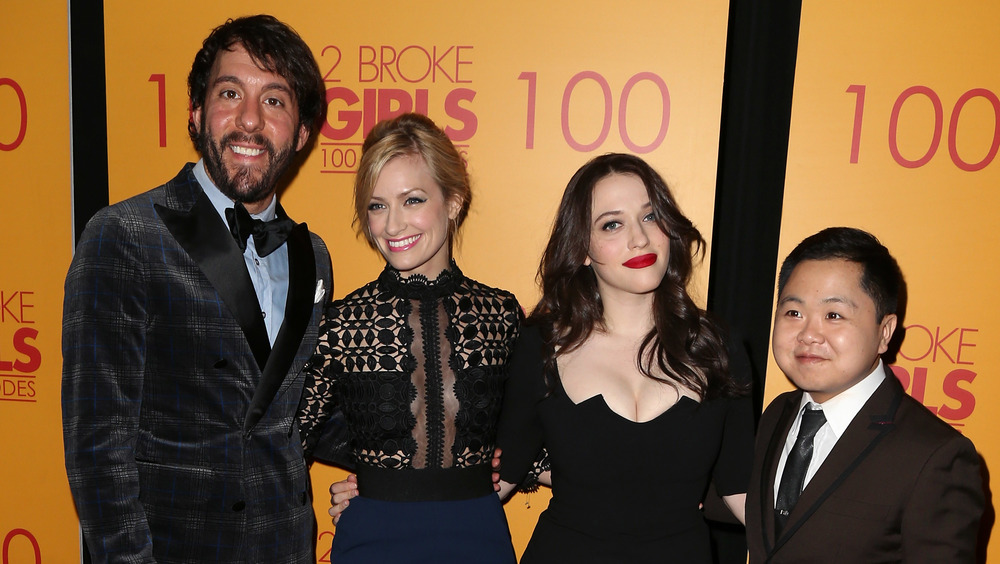2 Broke Girls Got Canceled And It's Pretty Obvious Why
In its heyday, CBS's 2 Broke Girls was a popular sitcom, though it was never without controversy. When the show debuted, The New Yorker's Emily Nussbaum wrote that the show was "so racist it is less offensive than baffling." It was hardly a critical darling, despite bringing in millions of viewers each week. But the racism and stereotypes aren't why 2 Broke Girls was canceled; the reasons it ended after six seasons were all about business (and money).
"2 Broke Girls was a really good show for us for a very long time," CBS head of scheduling Kelly Kahl, head of scheduling at CBS, said to Deadline in May 2017. "Our comedy development this year was very good, and whenever your comedy development is really good, it puts a lot of pressure on some of your older shows. We felt creatively it was time and we had to create some space on the schedule to get some new product on."
Aside from CBS making way for new shows, there was also the fact that the network didn't own the show, which was produced by Warner Bros. Television. "The network's lack of an ownership proved to be its demise," The Hollywood Reporter shared in May 2017, adding that CBS had reportedly considered a 13-episode Season 7 for the show. The lack of ownership meant that CBS didn't earn the profits from the show's syndication. Combined with the network's statements about moving forward with new shows, 2 Broke Girls' cancellation makes sense.
The 2 Broke Girls showrunner and stars wanted another season
Fans might think that Max (Kat Dennings) getting engaged to Randy (Ed Quinn), along with a biopic being made about Caroline's life, was a good finale for the show. But the writers and producers had a lot more in mind for the comedy series.
"This is not the end for these girls," executive producer and co-showrunner Michelle Nader said to TVLine in April 2017. "We're not finished, and we don't want to be finished, and I don't think the audience is finished. Obviously, there's no guarantee that we will be back, but we did not write the episode as a series finale."
And if the show had gotten a Season 7, there would have been plenty of surprises in store. For one thing, Cher was in talks to play Max's mom, according to TVLine. Now that would have been fun to see!
Dennings knows that fans wanted more from the show, too. In November 2017, the Dollface star told Yahoo! Entertainment that she'd be down for a 2 Broke Girls reunion special if it ever materialized. "We didn't get to see Max and Randy's real wedding, which I think would've been cool," Dennings said to Yahoo! "Maybe one day we'll wrap it all up with a two-hour special where we see all of these things happen... I would love that. I think the people that watched the show for so many years deserve some closure, and I would love to give that to them."
2 Broke Girls' legacy is marred by its off-color "jokes"
After 2 Broke Girls was canceled, Kat Dennings tweeted that she and costar Beth Behrs would have a "lifelong friendship" thanks to the show. And while it's nice to see that they're close in real life, it's impossible for fans to look past the many instances of racism the show perpetuated. Caroline and Max's boss, Han, was "short, asexual, and work-obsessed," as The Guardian put it — all of which are harmful Asian stereotypes. Han also spoke in broken English with an exaggerated accent, which viewers also saw as a stereotype.
Plus, as The Hollywood Reporter pointed out in 2011, Han wasn't the only poorly written character on the show. Restaurant cook Oleg was an Eastern European character "whose only role is to be lecherous and onerous," the magazine wrote at the time. Countless "jokes" about Han and Oleg were far from funny, yet the show never seemed to learn its lesson. 2 Broke Girls was also criticized in 2015 for a "joke" about an Aboriginal woman.
When asked about the show's reliance on stereotypes in 2012, creator Michael Patrick King cited his sexuality as a defense. "I'm gay," King said at a press tour panel in 2012, according to Entertainment Weekly. "I'm putting in gay stereotypes every week. I don't find any of it offensive, any of it. I find it comic to take everybody down."
Still, "taking down" marginalized people isn't the best look for a TV show, so in some ways, the show's cancellation is perhaps for the best.



